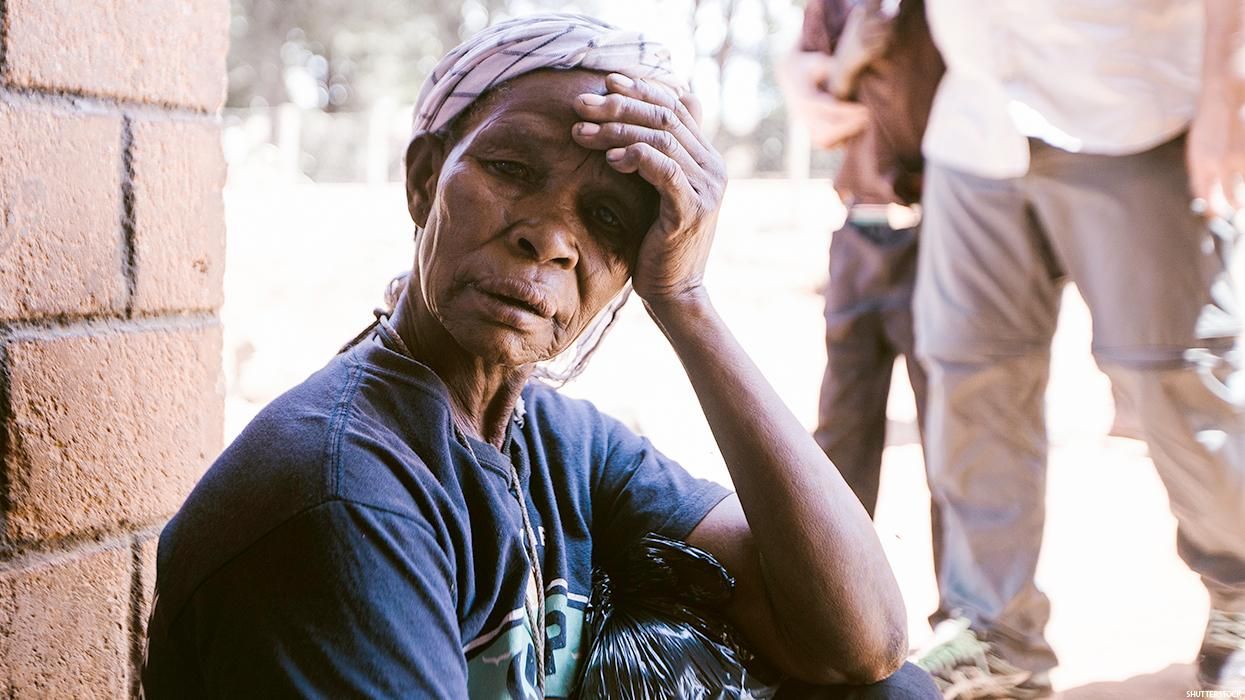As the world faces newly exacerbated climate disasters, women and girls are experiencing the harshest fallout.
Pakistan and Nigeria have been the victims of severe flooding caused by global warming, with the Horn of Africa reporting the worst drought to date. While these countries are experiencing the most severe losses and damages from climate change, experts note that they are nowhere near the highest global emitters.
A recent study from ActionAid UK that examined climate change developments in Kenya, Rwanda, Zambia and Nigeria, found that economic stress from climate change has an undue burden on these countries' women. Not only have environmental disasters damaged women's mental health, they've also increased gender-based violence.
The report reads: "Climate change-induced losses and damages affect everyone, but not equally, and climate justice can only be achieved when based on the foundations of gender justice. Women living in rural communities at risk of economic marginalization in the Global South—who bear the least responsibility for greenhouse gas emissions—are experiencing the worst impacts of the climate crisis and the greatest losses and damages."
In many cases, women and girls are pushed to drop out of school, or to marry early to help ease their families' financial burdens. In fact, girls are 20 percent more likely to be married off in times of economic stress than in times of stability.
Crops and livestock have died out at alarming rates, affecting the income of families across African countries. Even travelling further distances to retrieve water puts women at a greater risk of violence, especially when they must travel outside daylight hours and in unprotected areas.
Women have been unjustly forced into the frontlines of climate change, but their efforts to build climate-resilient communities have been one of the leading forces combating it. As ActionAid's report continues: "Women on the frontlines of the climate crisis are leading climate change responses and are central to effective climate action."
Despite their efforts, Aljazeera reports that women's voices are often "not sufficiently heard" when leaders make decisions on climate change, including at the currently ongoing UN summit, COP27. Industrial countries that are responsible for the majority of emissions have yet to pay their dues, leaving the burden to fall on women and girls in developing nations.
Sophie Riggs, Senior Climate and Resilience Adviser at ActionAid, writes: "This is unacceptable. Climate finance needs to cover reparations for the lost years of girls’ education, address women’s lost security, and compensate for their failed crop yields. We need progress on these issues at COP27, not yet another year of kicking the can down the road."
Since the COP26 conference last year, only 24 countries have submitted new or updated climate plans, leaving the global effort to address climate change falling abhorrently short.
Riggs continues: "We need less rhetoric and a greater focus on women’s rights and actions to help them thrive and bring their communities out of poverty. Without this, the gendered injustice of climate change and the silent crisis for women and girls will only get worse."
- Is Climate Change Making a White Christmas Less Likely? - Advocate Channel ›
- Congress Pledges $1 Billion to Countries Impacted by Climate Change - Advocate Channel ›
- Rural Americans Aren't Receiving Emergency Alerts During Disasters - Advocate Channel ›
- Scotland and Spain Move to Simplify Legal Gender Changes - Advocate Channel ›
- How Climate Change Leaves Women at Risk of Domestic Violence - Advocate Channel ›
- Climate Advocacy Group Vows to Stop Disruptive Protests - Advocate Channel ›
- The Ozone Will Be Repaired Within Decades, UN Report Finds - Advocate Channel ›
- Atlanta Teens Send Tens of Thousands of Books to African Students ›



















































